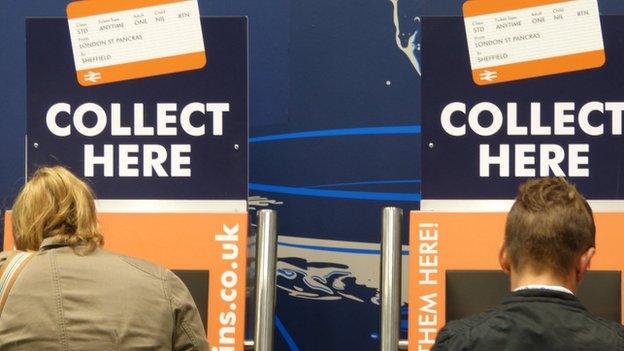Inflation falls more than expected
- Published
Phil Gooding, Office for National Statistics: "The major effect comes from clothing"
The annual rate of UK inflation fell more than expected in July as the cost of clothing, footwear, food and non-alcoholic drinks eased.
The Office for National Statistics (ONS), external said Consumer Price Index (CPI) inflation fell to 1.6% from 1.9% a month earlier.
But CPI remains well above average wages which grew by just 0.6% in the three months to June.
The Retail Prices Index, which includes housing costs, fell to 2.5% from 2.6%.
Economists had expected CPI inflation to fall to 1.8% in July.
The ONS said consumer price inflation for the three month period to the end of July was 1.7%.
It means the Bank of England remains under little pressure to raise interest rates in order to keep inflation at or below its target rate of 2%.
The pound fell against both the dollar - hitting its lowest point against the currency since April - and the euro following the release of the inflation figures.
Last week, Bank policymaker Professor David Miles told the BBC he believed inflation was likely to remain below target for some time to come.
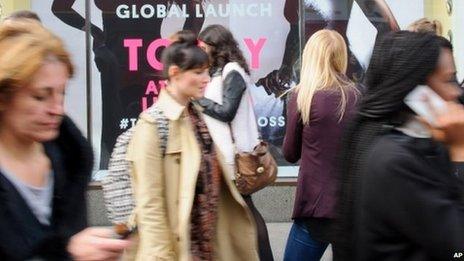
The ONS said clothing and footwear were the biggest influences on the fall in the Consumer Prices Index
He added that this was a "very good news" as it meant the Bank was not "going to be pushed into raising interest rates sharply or immediately because the inflation outlook remains pretty subdued".
Bank governor Mark Carney, however, has been accused of sending out mixed messages on when an interest rate rise may occur.
Following publication of the Bank's quarterly inflation report last week Mr Carney said he remained concerned about poor wage growth.
MPC vote
On Wednesday the minutes of the August meeting of the Bank's Monetary Policy Committee (MPC) will be published, with analysts looking for any sign of a split vote on the nine member panel over whether to raise interest rates.
The MPC has voted unanimously on interest rate policy for the last three years.

Analysis: Business editor Kamal Ahmed
Although today's inflation figures are important for their impact on rail fares, it is worth considering the broader economic picture and growing evidence that the UK is in an incredibly benign inflation cycle.
The strength of sterling (up 14% since March 2013) has made imports cheaper - and in a cut throat retail world those savings tend to be passed on to consumers rather than pumped into better profit margins. The oil price is also falling due to a glut in supply and weak demand from the eurozone.
Domestically, low wage growth and negative food inflation are also taking pressure off any upward tick in inflation. The doves in the Bank of England will be preening their feathers - most economists think today's figures push the prospect of an interest rate rise further into the future. After the next general election? Well, that would be very convenient for the Chancellor.

Tony Wilson, head of strategy at the foreign exchange specialists FEXCO, said the "surprisingly large" fall in CPI offered more concrete insight into the likely course of the Bank of England's monetary policy.
He added: "With CPI now comfortably below its 2% target, the Bank has no need to use interest rates to tame inflation. Despite the contradictory messages given by governor Carney, the doves clearly still rule the roost."
David Kern, chief economist at the British Chambers of Commerce, added: "If you ask me when they should raise rates I think they could wait until the second quarter.
"Essentially if inflation stays where it is today the Bank can afford to wait. On the basis of what we know today I think they can afford to wait until the middle of next year.
"If you ask me when they will raise rates, I think they won't wait, I think they will raise rates in the first quarter. But at the moment the data supports my view."
Separately, the government has announced that rail fares will rise by 3.5% from January next year.
Under the government's formula, regulated rail fares in England and Wales rise by July's RPI measure of inflation, plus 1%.
The ONS also released house price data for June which showed the rise in property values eased slightly to 10.2%, from 10.4% in May.
Excluding London and the South East, prices rose by 6.3% across the UK, the ONS added.
- Published17 February 2015
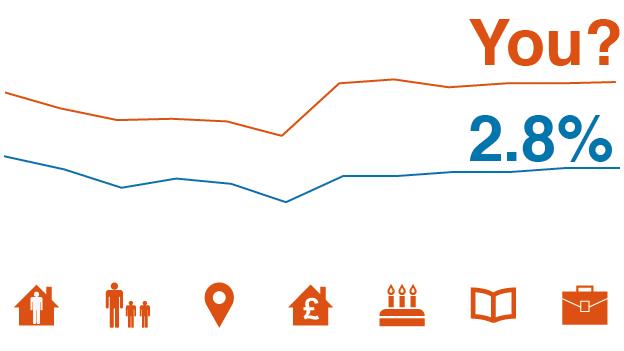
- Published17 February 2015
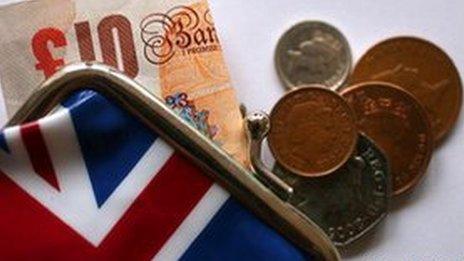
- Published19 August 2014
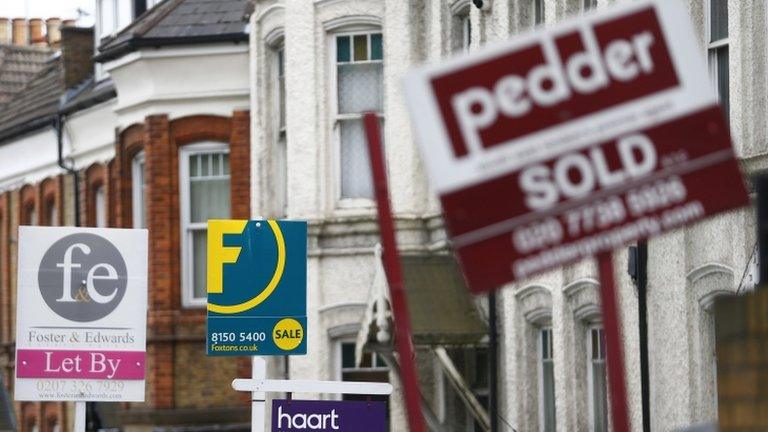
- Published19 August 2014
